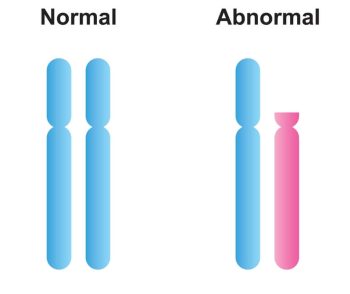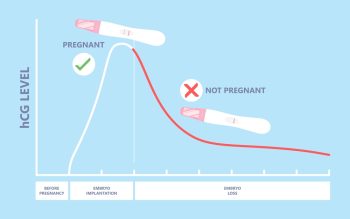Pregnancy is a time of excitement and joy for many couples trying to conceive, but when things don’t go as planned, it can be a stressful and disheartening experience.
What is a chemical pregnancy ? This is one situation that can catch women off-guard. At first, this term might sound like a complicated medical issue, but it’s actually quite common.
Even so, many people don’t fully understand this condition. In this blog post, we’ll take a closer look at what chemical pregnancy is, what the causes may be, and how it can be diagnosed and treated.
What is a Chemical Pregnancy?
A chemical pregnancy is a term used to describe a very early pregnancy loss that happens before the embryo can be detected with an ultrasound.
The name “chemical” pregnancy comes from the fact that the only sign of pregnancy is a positive pregnancy test, which indicates the presence of the hormone human chorionic gonadotropin (hCG) in a woman’s urine or blood.

Some women might experience very light bleeding around the time they would expect their period, but otherwise, they may not even realize they were pregnant to begin with.
What Causes Chemical Pregnancy?
There are many reasons why a chemical pregnancy can occur, but it’s often related to chromosomal abnormalities in the embryo.
An embryo with missing or extra chromosomes is less likely to implant properly into the uterine lining.

In some cases, a chemical pregnancy can be caused by underlying health conditions such as thyroid problems, uncontrolled diabetes, or a hormonal imbalance.
Lifestyle choices such as smoking or using drugs can also increase the risk of chemical pregnancy.
How is Chemical Pregnancy Diagnosed?
Chemical pregnancies are often diagnosed through a series of blood tests. When a woman has a positive pregnancy test, her doctor will check for rising levels of hCG.

If the levels don’t rise as expected, or if they fall rapidly, it could be a sign of a chemical pregnancy. Another way to confirm the diagnosis is through an ultrasound scan.
In most cases, an ultrasound would be performed between 4 and 6 weeks of the pregnancy to detect any signs of gestational sac or embryo, but in a chemical pregnancy, the ultrasound would come back negative.
How Can Chemical Pregnancy Be Treated?
There is no specific treatment for chemical pregnancy, and unfortunately, there’s nothing that can be done to prevent it from happening.
The body will naturally expel the embryo, and light bleeding might occur as a result. In most cases, no further medical intervention is necessary, and couples can try again as soon as they feel ready.

However, if a woman experiences severe symptoms such as heavy bleeding and cramping, medical attention may be required.
In rare cases where hormonal imbalances are the cause of the chemical pregnancy, medication may be prescribed to regulate the hormones.
In conclusion, chemical pregnancy is a common occurrence that can be difficult for couples going through infertility struggles.
The good news is that most women who experience a chemical pregnancy go on to have healthy pregnancies without any complications.
Although it can be challenging to deal with, it’s important to remember that a chemical pregnancy is not a woman’s fault, and it’s no indication of her ability to conceive in the future.
What’s more important is to seek the right support through this tough time, and to take care of both the physical and emotional aspects of the experience.


